Booklice Identification & Control
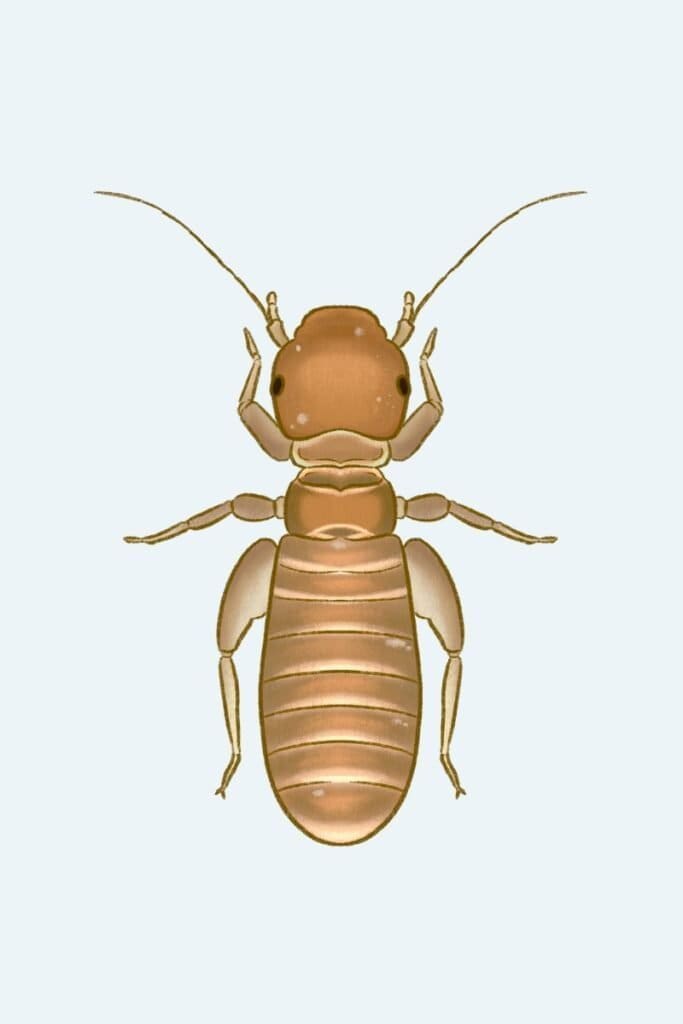
What Are Booklice?
Booklice, also known as psocoptera or paperlice, are tiny, wingless insects that infest damp and warm environments in homes and libraries. While their name suggests a connection to lice, they are harmless to humans and pets. However, booklice can become a nuisance by damaging books, documents, and stored food products. Understanding their behavior and addressing the root causes of infestations are essential for effective management.
Appearance
Booklice are small. The common household varieties are only about 1–2 millimeters in length, which is less than the thickness of a nickel. They have long antennae and soft, translucent bodies that range in color from white to light gray. Upon closer inspection, their segmented appearance and slow movements make them identifiable, even to the untrained eye.
Behavior
Booklice thrive in warm, moist environments, where they feed on mold, fungi, and organic debris. Their preferred habitats include bookshelves, basements, and areas with poor ventilation—essentially any space with high humidity and limited airflow. Booklice are particularly common in spring and summer when moisture levels tend to rise.
These pests reproduce rapidly, laying eggs in hidden areas where conditions are damp and food sources are abundant. The lifecycle of a booklouse is relatively short, with eggs hatching in just a few days under optimal conditions. This allows populations to grow quickly if humidity remains unchecked.
Risks
While booklice do not pose health risks to humans or pets, they can damage property and contaminate stored food. These pests feed on mold and organic matter, which can lead to the weakening of book bindings, wallpaper glue, and paper products. Additionally, their presence in stored food products is a clear indicator of mold contamination, making the affected items unsuitable for consumption.
The real concern with booklice is what their presence signifies—persistent moisture problems. Mold and mildew, which attract booklice, can exacerbate respiratory conditions or allergies, creating an unhealthy living environment.
Identification
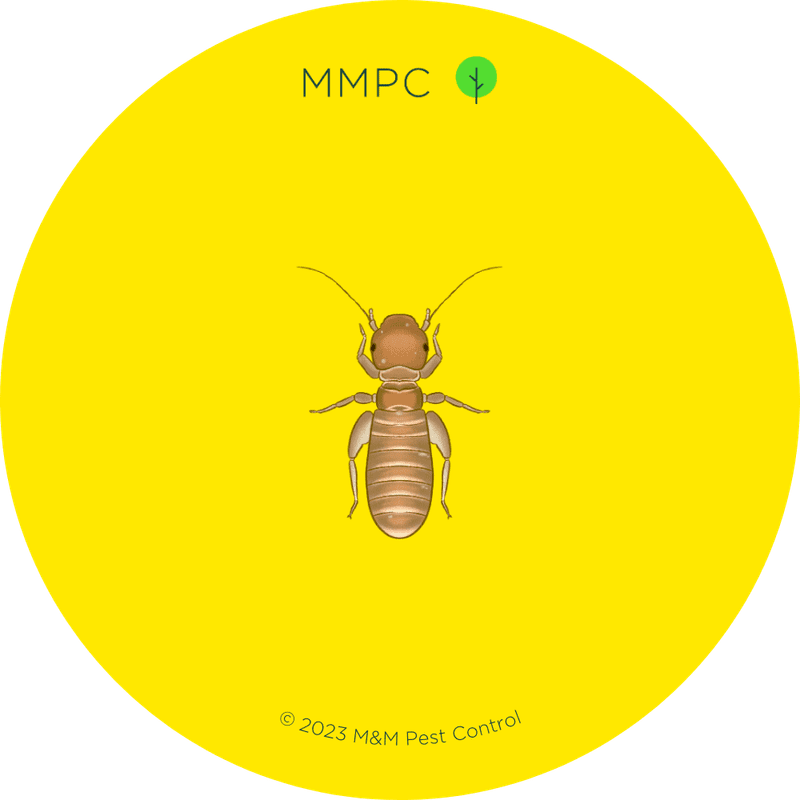
Booklice
Booklice (Liposcelididae spp.) are tiny insects that often go unnoticed until you look closely. Unlike fleas or other tiny pests, booklice don’t jump or move quickly. You might find them crawling slowly on books, shelves, or walls in damp areas like basements, bathrooms, or kitchens.
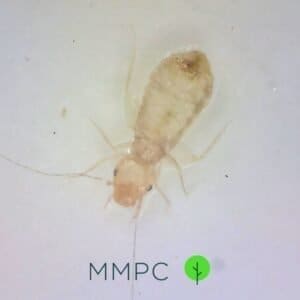
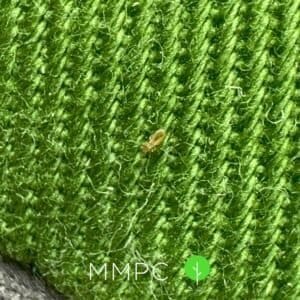
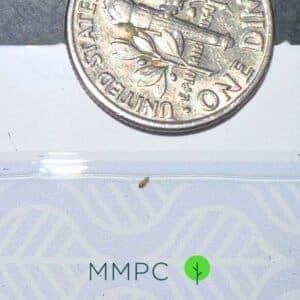
Size: 1/25″ – 1/6″ long (1 – 4 mm)
Color: Pale white, gray, or light brown
Identifying Features:
- Soft-bodied and wingless
- A broad head with protruding eyes and a distinctive bulge (clypeus) above the mouthparts, resembling a large nose
- A narrow thorax
- A wide, elongated abdomen with 9 visible segments
- Long, thread-like antennae
- 6 legs
Control

How to Get Rid of Booklice
Controlling booklice involves addressing the root cause—excess moisture. These pests cannot survive in environments with low humidity, so reducing moisture levels is the most effective strategy. Early intervention is key to preventing a small infestation from becoming a widespread problem.
DIY methods for managing booklice focus on moisture control, cleaning, and targeted pest control techniques. By combining these strategies, most homeowners can eliminate booklice without professional intervention.
Reduce Moisture
The first step to controlling booklice is lowering humidity levels to under 50%. Use a dehumidifier or moisture absorbers in affected areas. Proper ventilation is essential—install exhaust fans in kitchens and bathrooms, and repair leaky pipes or roofs that contribute to damp conditions.
Clean and Declutter
Thoroughly clean infested areas to remove mold, eggs, and feces. Vacuum cracks and crevices, wipe down shelves, and discard heavily infested items. Store dry goods in airtight containers and ensure that books and papers are kept in a dry, well-ventilated area.
Apply Natural Remedies
For a chemical-free approach, sprinkle food-grade diatomaceous earth in areas where booklice are present. This natural desiccant dries out their bodies, effectively killing them. Placing infested items like books in sealed bags with desiccant packets can also help eliminate moisture and pests.
Recommended Products
Certain products can complement DIY efforts by targeting booklice and preventing their return. Always choose eco-friendly and safe options when possible.
- Desiccant Packs: Great for maintaining dryness in bookshelves and storage boxes.
- Mold-Resistant Cleaners: Ideal for removing mold and mildew, which attract booklice.
- Insecticides with Pyrethrins: These provide temporary control but should be used sparingly and as directed on the label.
FAQs
Why Are Booklice in My Home?
Booklice are drawn to environments with high humidity and organic debris, such as mold. They often appear in areas like basements, kitchens, and bathrooms, where moisture levels are elevated.
Are Booklice Dangerous to My Health?
No, booklice do not bite or transmit diseases. However, their association with mold can worsen allergies or respiratory issues in sensitive individuals.
How Long Does It Take to Get Rid of Booklice?
With proper moisture control and cleaning, most infestations resolve within 2–3 weeks. Consistent effort is key to ensuring they don’t return.
Our Services
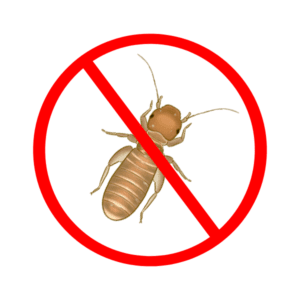

At MMPC, we specialize in discreet, effective pest control solutions tailored to your needs. Our experts use eco-friendly methods to eliminate booklice and address the underlying moisture issues causing infestations.
If booklice are disrupting your home, contact us today for expert help. We’re here to provide you with peace of mind and a pest-free environment.


